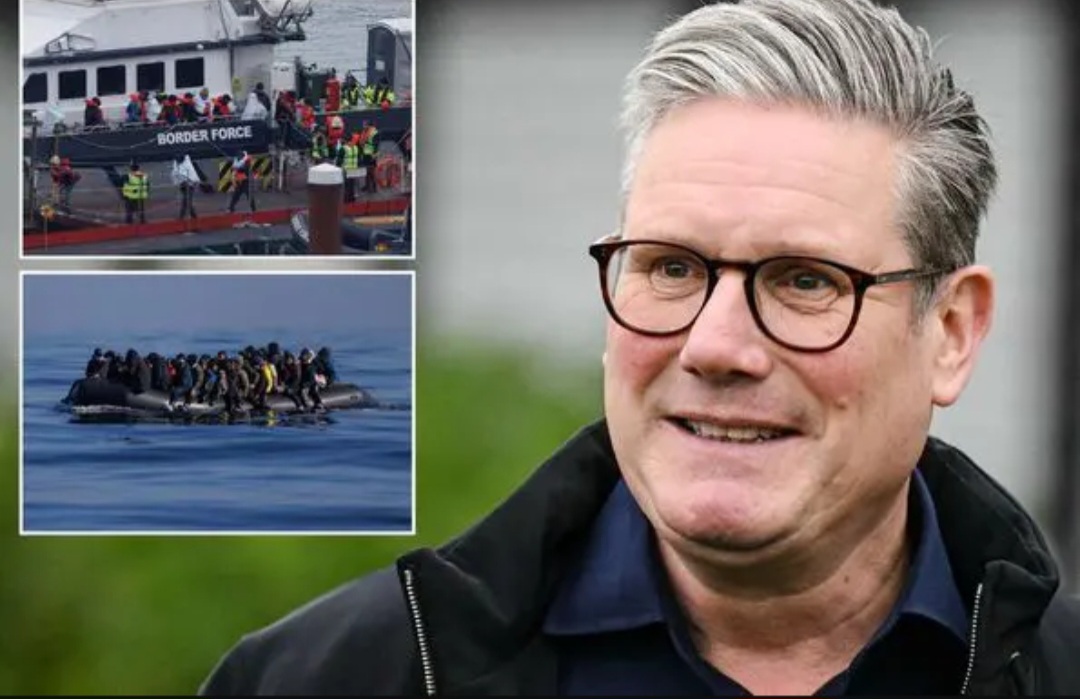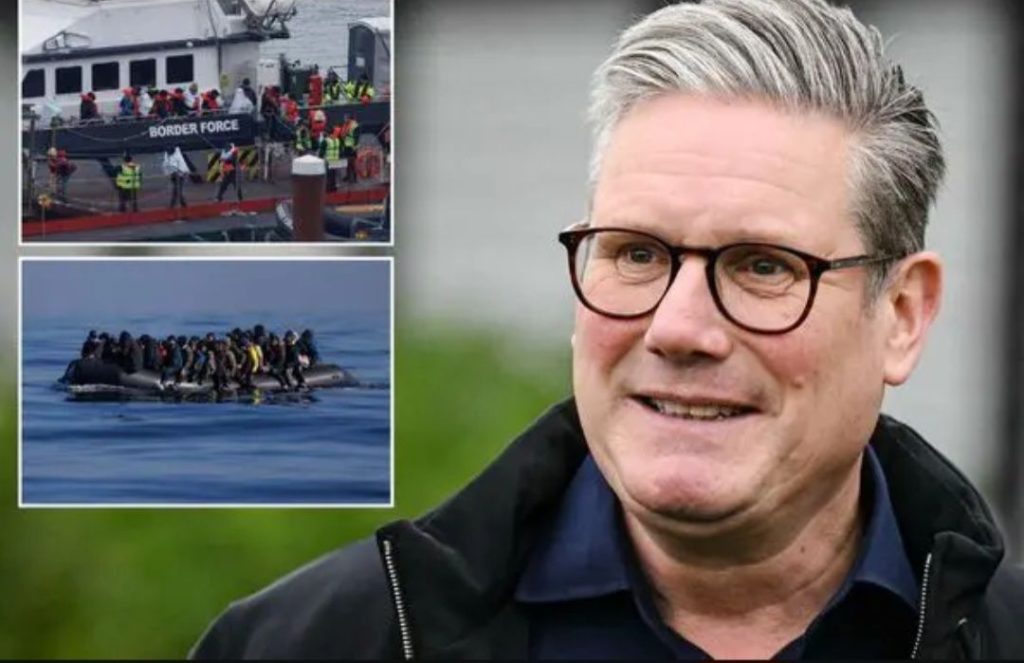
Sir Keir Starmer, Leader of the Opposition in the UK, is gearing up to unveil Labour’s ambitious immigration plan amidst escalating concerns over the Channel crossing migrant crisis. In his upcoming address on the Kent coast, Starmer intends to challenge the current government’s approach, particularly criticizing Rishi Sunak’s Rwanda “gimmick” while proposing a substantial shift in tackling people-smuggling gangs.

Starmer’s key proposition is the establishment of an “elite Border Security Command,” funded by redirecting resources from Sunak’s Rwanda initiative. This new command structure, to be led by a seasoned figure from either police, military, or intelligence backgrounds, aims to enhance counter-terrorism powers to combat criminal networks facilitating illegal immigration through the English Channel.
According to GB News, The rhetoric accompanying Starmer’s announcement underscores a shift towards what he describes as “graft” over “gimmicks.” By characterizing Sunak’s Rwanda initiative as a mere gimmick, Labour seeks to position itself as offering substantive, evidence-based solutions to the pressing issue of migrant smuggling.
In his forthcoming address, Starmer is expected to frame the migrant smuggling crisis as a battle against criminal enterprises that exploit vulnerable individuals. This narrative resonates with Labour’s emphasis on law enforcement and security measures, contrasting with the Conservative government’s recent focus on international relocation programs like the Rwanda initiative.
The emphasis on targeting criminality associated with human trafficking and smuggling aligns with Starmer’s legal background as the former head of the Crown Prosecution Service. This positioning allows him to leverage his expertise in criminal justice as a central pillar of Labour’s approach to immigration and border security.
The backdrop against which Starmer unveils Labour’s immigration plan is notable for recent political shifts, exemplified by the surprising defection of right-wing Dover MP Natalie Elphicke to the Labour Party. Elphicke’s move signals discontent within the Conservative ranks regarding the handling of immigration issues, particularly the perceived failure to address border security adequately.
Elphicke’s critique of the Conservative government, especially targeting Rishi Sunak’s immigration policies, underscores growing discontent within traditionally conservative circles over the handling of the migrant crisis. Her defection amplifies Labour’s narrative of presenting a credible alternative to the incumbent government’s strategies.
Labour’s immigration strategy, as articulated by Starmer, will undoubtedly face scrutiny and comparison with the policies put forth by Rishi Sunak’s government. The ongoing Channel crossing crisis, with over 9,000 migrants having crossed so far in 2024, provides a volatile backdrop against which Starmer’s proposals will be evaluated.
Public perception of Labour’s immigration strategy will hinge on its perceived effectiveness in addressing both the immediate challenges of the migrant crisis and the underlying issues of border security and criminal activity. Labour’s pivot towards a more robust law enforcement-oriented approach, exemplified by the proposed Border Security Command, aims to resonate with voters disillusioned with what is perceived as ineffective government measures.
Sir Keir Starmer’s unveiling of Labour’s immigration plan signifies a pivotal moment in the UK’s political landscape, as the opposition seeks to position itself as a credible alternative to the current government’s immigration policies. The proposed Border Security Command and the critique of Sunak’s Rwanda initiative underscore a strategic shift towards emphasizing law enforcement and security measures in addressing the Channel crossing crisis.
As Labour’s immigration strategy takes center stage, it will face intense scrutiny and debate, particularly regarding its feasibility, efficacy, and potential to resonate with a public increasingly concerned about border security and illegal immigration. The upcoming announcement on the Kent coast will serve as a critical juncture in shaping the narrative surrounding immigration policy and national security in the UK.




